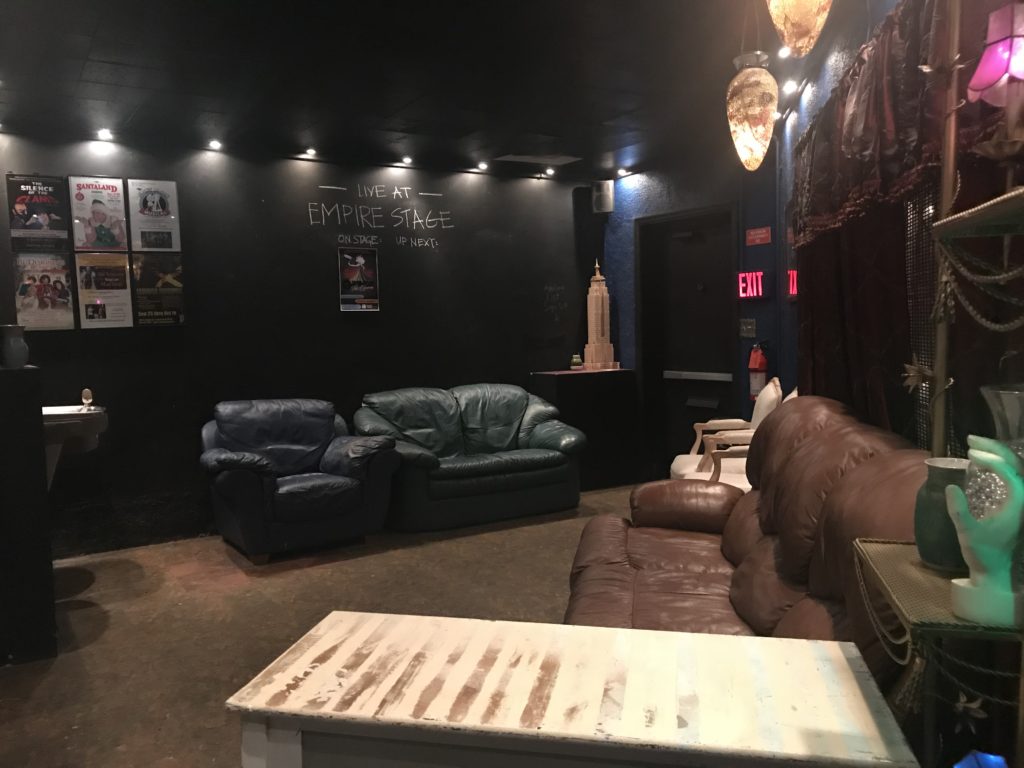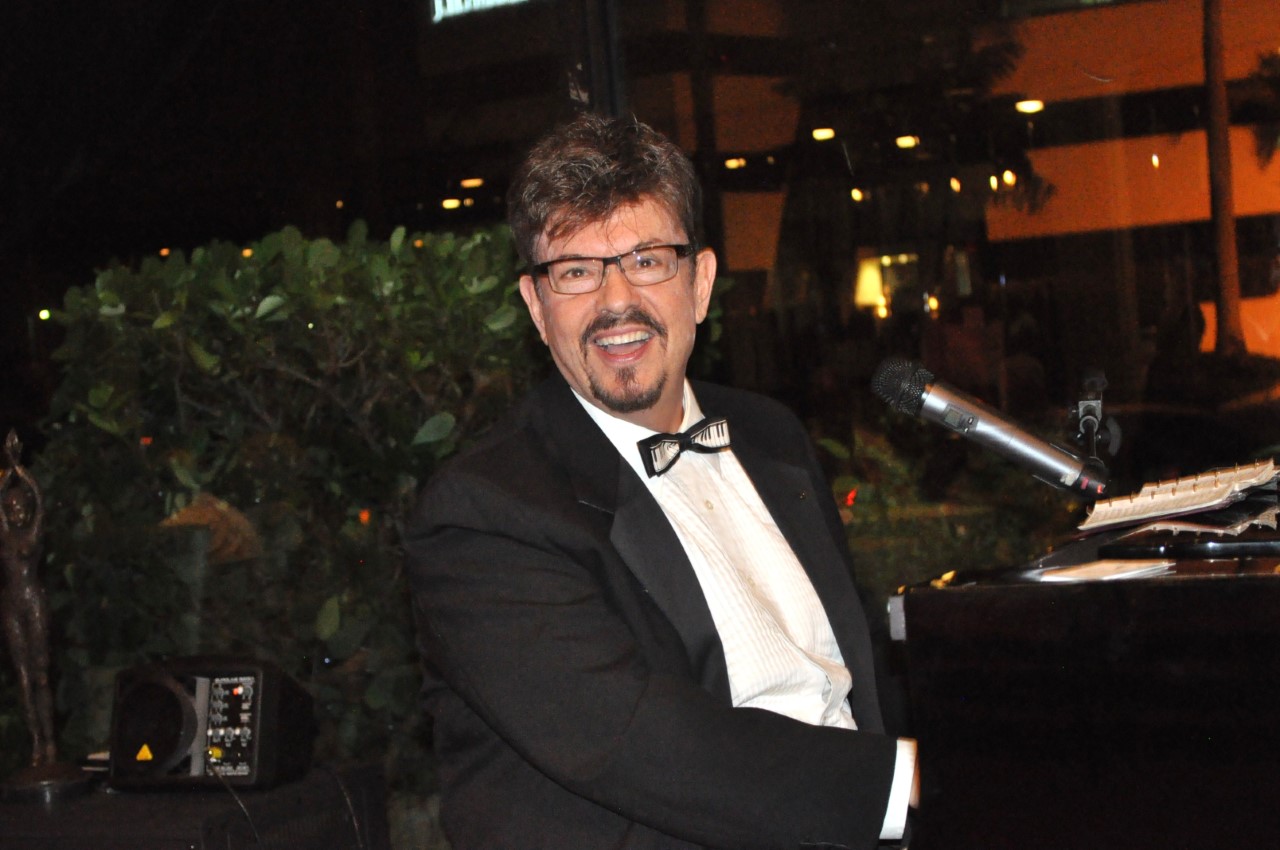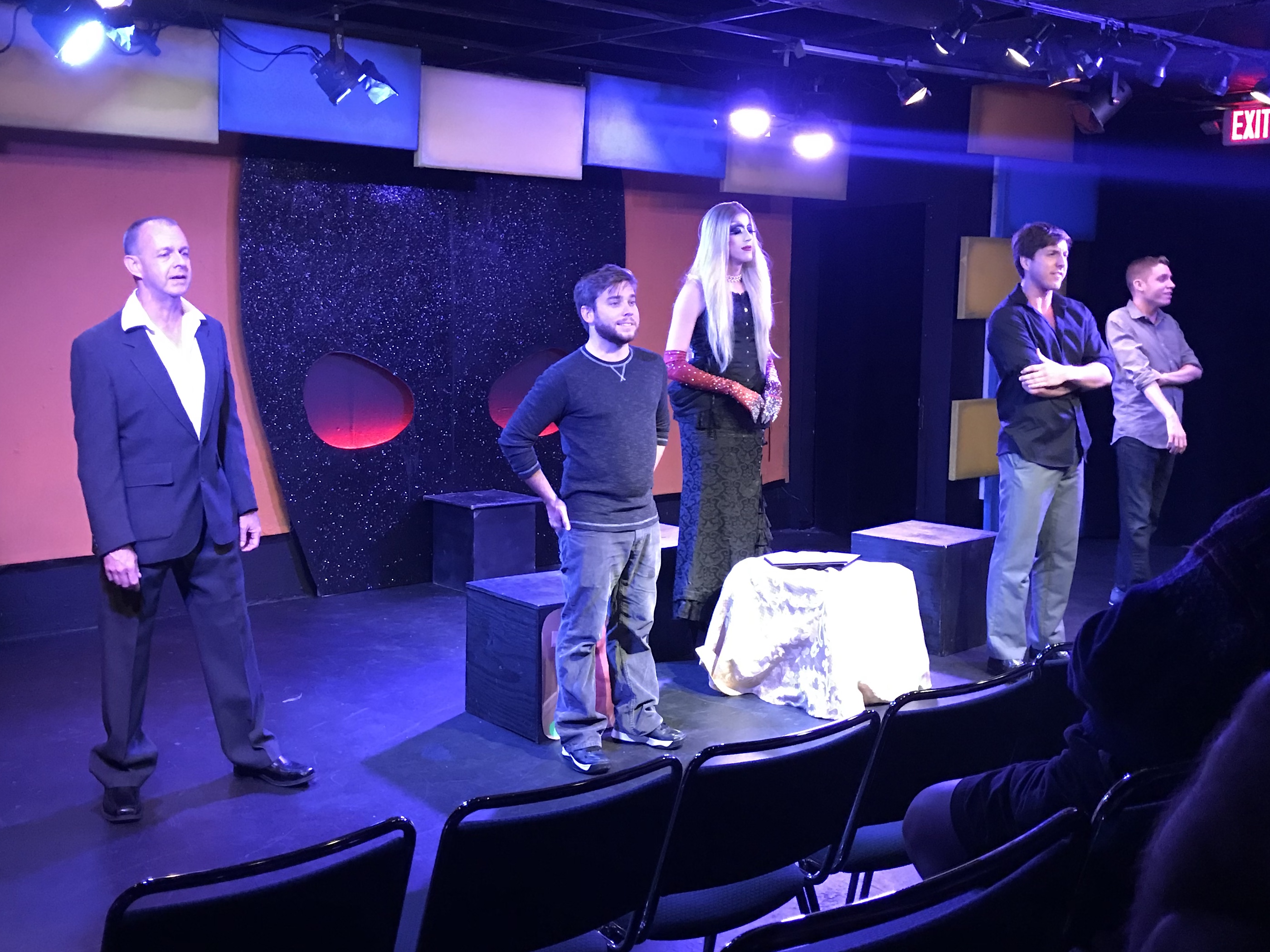
SHADE-O-METER RATING
3 OUTTA 5 WERKS: “NO SHADE, BUT SHE DIDN’T TURN IT OUT”

What’s GRINDR: The Opera? It’s a pop opera. The music, libretto and lyrics are by Erik Ransom. What’s Empire Stage? It’s a lovely little theater in an industrial section of Wilton Manors. Specifically, it’s down the street from the all-male strip club, Le Boy. How many people does the venue hold? About 50. How was the parking? They have parking behind the venue and on the street. Both are free. Does the venue serve liquor? No imbibements are offered. Does the venue serve food? Nope. How much were the tickets? $35. Was the show sold out? Yes. How was the crowd? All queens. I don’t think I saw one female in the house.
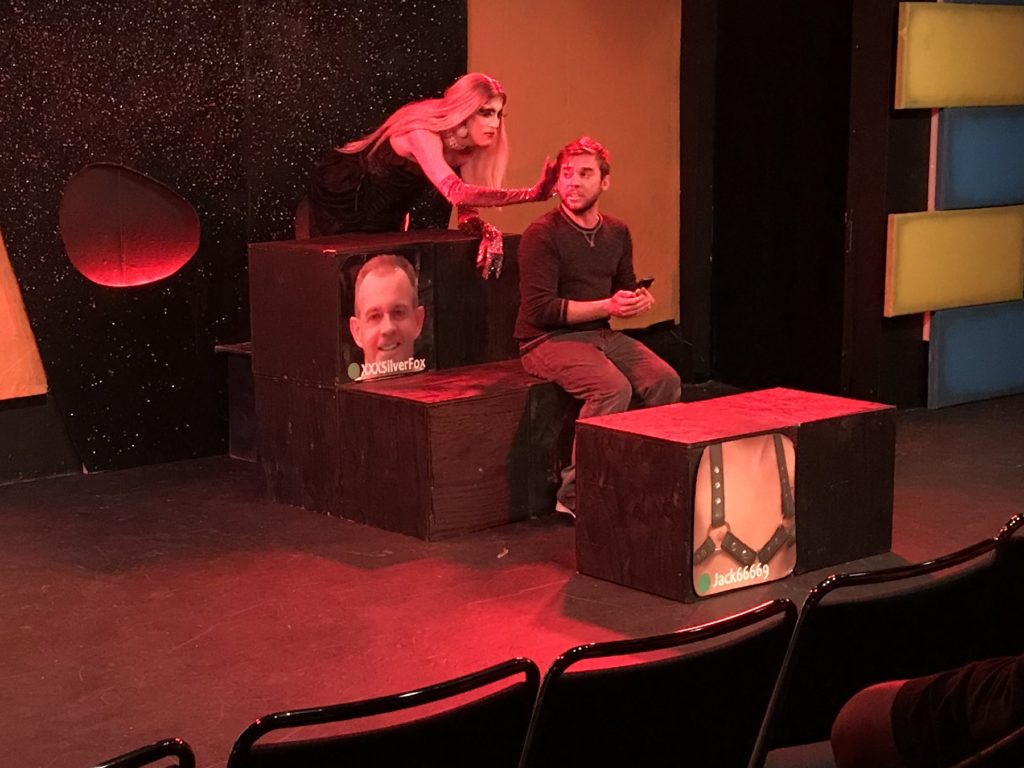
How was the music? To quote Hamlet, “The play’s the thing.” That too can be said of a musical—the music’s “the thing.” Considering this, it’s highly unlikely that one would leave the theater remembering one song that was heard. I certainly didn’t. The only song that I remembered was the last one, “What a Tangled Web We Weave,” and that was only because of the title. The mostly-derivative pop rock-ish score consisted of whiffs of lesser numbers from Hamilton, Rent, Next to Normal, Dear Even Hanson and Depeche Mode, and then filtered through the prism of the cult film Phantom of the Paradise. Of note, the show is performed to a track.
GRAMMY WINNING BEST SELLER
How was the story? The story consists of a rather conventional conceit of four male Grindr uses who’s lives inevitably intersect. One could view this aspect of the story as a metaphor for the medical opinion that when you sleep with someone, you’re also sleeping with everyone else that they’ve ever slept with. GRINDR: The Opera is a story of boy-meets-boy, boy then cheats-on-boy. To make matters worse, the “Jezebel” character who sleeps with the one boy—sobriqueted on Grindr as “powerbottom18”—has a father that’s a closet-cased city councilman. Surveying all these festivities was the “spirt” of Grindr, or “mother” Grindr herself—a drag queen. How were the lyrics? With lyrics such as “I want to be seeded,” “I’ll be your cum dumpster,” “Split me down the middle like the Berlin Wall,” and “Fuck me until I’m bleeding,” this show definitely ain’t for the kiddies. Parents and expecting mothers, take note.
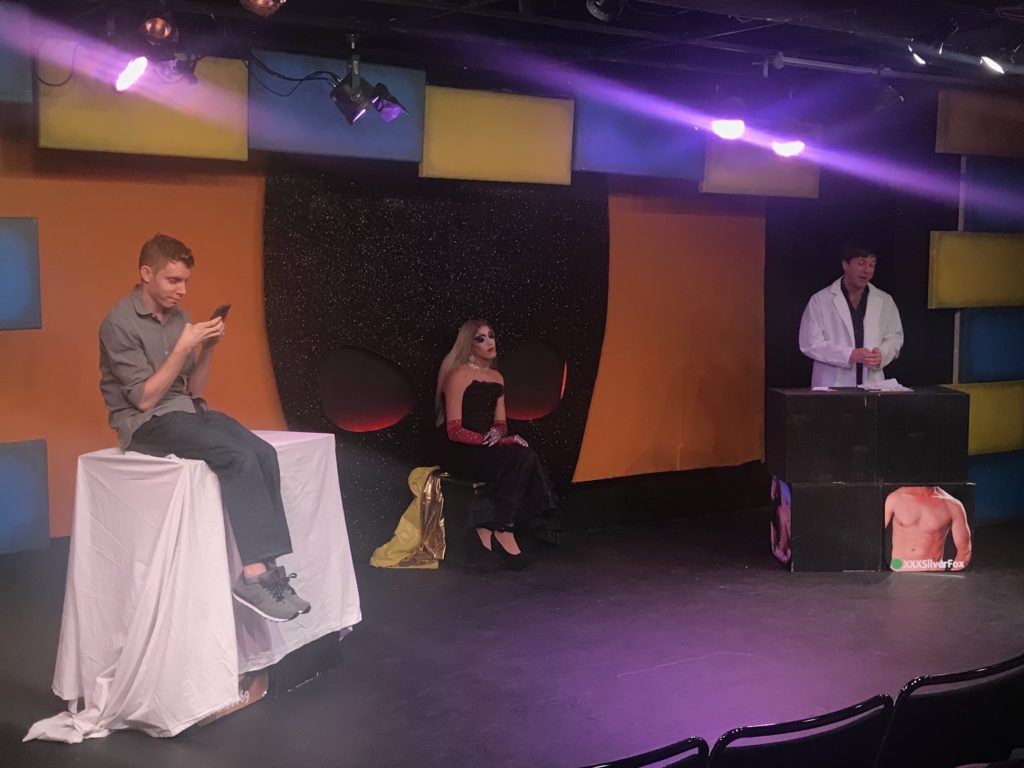
How was the set design and staging? This was fine. If anything, this was one of the better aspects of the show. The staging used the limited space and resources to maximum effect, with actors shifting around sets and props to indicate transitions. The infamous Grindr logo loomed front and center, with Sauron-like glowing eyes that surveyed the character’s antics. How was the costume design? Appropriate, for the most part, yet not always. For example, a glaring example of an incorrect design was the costume for the councilman character. The character was dressed in an ill-fitted suit, with no tie or socks on, and with the shirt collar worn over the jacket’s collar. Not only is this 1990s-inspired look inappropriate for a contemporary show, but it’s highly unlikely that an uptight closet case politician would be caught dead in such a disheveled getup.
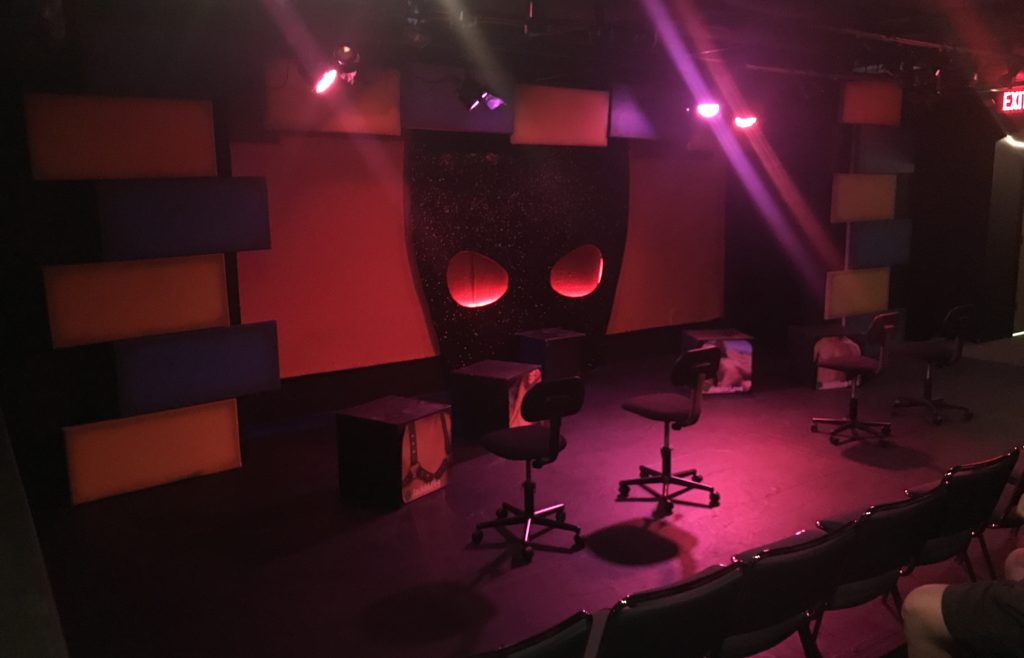
What could have improved the show? The music is what it is, and it’s up to the composer to write better songs. However, of particular irritation was this “mother” Grindr character, which, according to the website, is described as a “mythical” siren. Even those with only a passing knowledge of Greek mythology will recognize the symbolic similarities between the Grindr icon and the permanently erect and ready satyr. One can only imagine why mother “Drag Race” Grindr wasn’t reconceived as some kind of devil-faced enticing “daddy” Grindr instead. What was surprising about the show? According to the creator of Grindr, the app is named after coffee grinds, as in, “grinding” people together like they were coffee grounds. In that venture, the musical appeared to succeed.
GRINDR: The Opera plays through November 19 at Empire Stage. Empire Stage is located at 1140 North Flagler Drive, in Fort Lauderdale, Florida.
